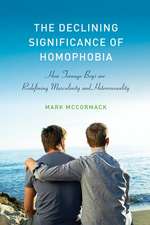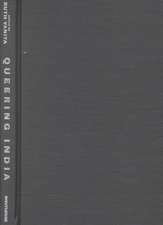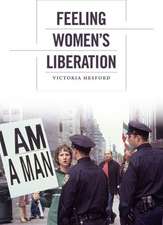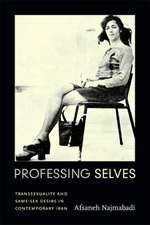Thinking Queerly: Race, Sex, Gender, and the Ethics of Identity
Autor David Ross Fryeren Limba Engleză Paperback – 30 noi 2011
| Toate formatele și edițiile | Preț | Express |
|---|---|---|
| Paperback (1) | 476.79 lei 6-8 săpt. | |
| Taylor & Francis – 30 noi 2011 | 476.79 lei 6-8 săpt. | |
| Hardback (1) | 1212.58 lei 6-8 săpt. | |
| Taylor & Francis – 30 iul 2010 | 1212.58 lei 6-8 săpt. |
Preț: 476.79 lei
Nou
Puncte Express: 715
Preț estimativ în valută:
91.23€ • 95.51$ • 75.49£
91.23€ • 95.51$ • 75.49£
Carte tipărită la comandă
Livrare economică 05-19 aprilie
Preluare comenzi: 021 569.72.76
Specificații
ISBN-13: 9781594513602
ISBN-10: 1594513600
Pagini: 116
Dimensiuni: 152 x 229 x 13 mm
Greutate: 0.16 kg
Ediția:New.
Editura: Taylor & Francis
Colecția Routledge
Locul publicării:Oxford, United Kingdom
ISBN-10: 1594513600
Pagini: 116
Dimensiuni: 152 x 229 x 13 mm
Greutate: 0.16 kg
Ediția:New.
Editura: Taylor & Francis
Colecția Routledge
Locul publicării:Oxford, United Kingdom
Cuprins
Chapter 1. On the Possibilities of Posthumanism, or How to Think Queer in an Antiblack WorldChapter 2. African American Queer StudiesChapter 3. Toward a Phenomenology of GenderChapter 4. What Levinas and Psychoanalysis Can Teach Each Other, or How to Be a Mensch without Going MeshugahChapter 5. Reading Responsibility in The Hours: Two Accounts of Subjectivity
Descriere
Taking on issues of race, sex, gender, and 'the ethics of identity', this work offers a fresh take on queer theory - one rooted in phenomenology rather than poststructuralism - that seeks to put postnormative thinking at its center. It offers a glimpse of what 'thinking queer' can look like in our 'posthumanist age'.














